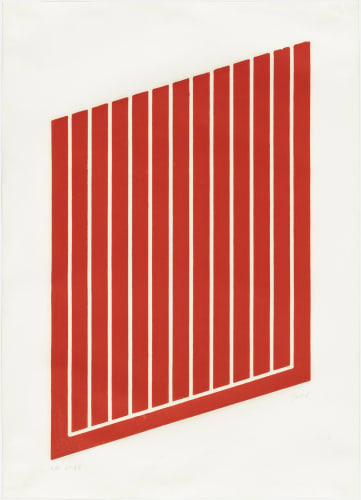Donald Judd (American, 1928–1994), widely regarded as one of the most significant American artists of the post-war period, is perhaps best-known for the large-scale outdoor installations and long, spacious interiors he designed in Marfa, Texas. His oeuvre has come to define what has been referred to as Minimalist art—a label the artist strongly objected to. His sculptures and installations, constructed out of industrial materials such as Plexiglas, concrete, and steel and arranged in precise geometric shapes, were intended to emphasize the purity of the objects themselves rather than any symbolic meaning they might have—“the simple expression of complex thought,” said Judd.
Judd’s artwork has been featured in numerous solo and group exhibitions around the world, and his works are in the permanent collections of important museums such as the Museum of Modern Art and the Guggenheim Museum in New York, the San Francisco Museum of Modern Art, the Hirshhorn Museum and Sculpture Garden in Washington, the Museum of Contemporary Art in Chicago, the Walker Art Center in Minneapolis, and Tate Modern and Tate Britain in London, UK.
